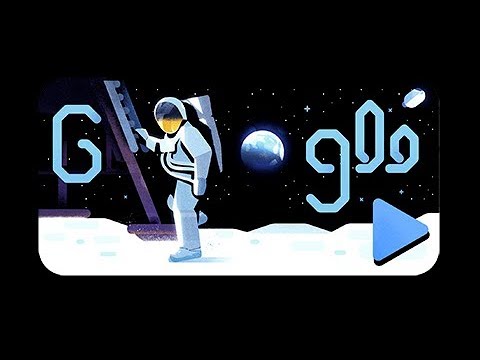50th Anniversary of the Moon Landing

50 years ago, NASA’s Apollo 11 mission changed our world and ideas of what is possible by successfully landing humans on the surface of the moon—and bringing them home safely—for the first time in history.
Today we celebrate this moment of human achievement by taking us through the journey to the moon and back, narrated by someone with firsthand knowledge of the epic event: former astronaut and Apollo 11 command module pilot Michael Collins.
How has the legacy of the Apollo 11 mission inspired future generations of scientists and space explorers?
Fifty years ago, on July 20th, 1969, the world watched in awe as Neil Armstrong and Edwin “Buzz” Aldrin became the first humans to set foot on the moon. This historic event, known as the Apollo 11 mission, marked a new era in space exploration and inspired generations of scientists and dreamers.
The Apollo program began in 1961, when President John F. Kennedy announced the ambitious goal of landing a man on the moon and returning him safely to Earth by the end of the decade. The task was enormous, requiring the development of new spacecraft, rockets, and technologies, as well as the training of astronauts to handle the challenges of space travel.
But despite numerous setbacks and tragedies, the United States was determined to achieve this goal. On July 16th, 1969, the Apollo 11 spacecraft was launched from Florida’s Kennedy Space Center, carrying Armstrong, Aldrin, and Michael Collins, who would orbit the moon while his colleagues made the historic landing.
After four days in space, the lunar module, nicknamed “Eagle,” separated from the command module and began its descent to the moon’s surface. As Armstrong and Aldrin approached the moon’s rocky terrain, they could feel their heart rates rising and their adrenaline pumping. “The Eagle has landed,” Armstrong famously announced to the world, capturing the awe and excitement of this groundbreaking moment.
Stepping onto the moon’s surface, Armstrong uttered another iconic phrase: “That’s one small step for man, one giant leap for mankind.” His words captured the magnitude of this achievement, which pushed the boundaries of human exploration and expanded our understanding of the universe.
In the years since the moon landing, space exploration has continued to captivate and inspire people around the world. Numerous space agencies and private companies have launched missions to explore other planets, study the cosmos, and search for signs of life beyond Earth.
As we celebrate the 50th anniversary of the Apollo 11 mission, we are reminded of the enormous courage, determination, and ingenuity it took to achieve this historic feat. But we are also reminded that the human spirit of exploration and discovery is limitless, and that there is still so much to learn and discover beyond our planet.
The legacy of the Apollo 11 mission has left a lasting impact on our world, inspiring generations to dream big and reach for the stars. As we look to the future of space exploration, we can never forget the incredible achievement that started it all, a giant leap that forever changed our understanding of ourselves and the universe we inhabit.









10 Celeb Kids Who Grew Up INCREDIBLY Good Looking
Actors Who Hate The Thing That Made Them Famous
10 Most Popular Celebrity Instagram Accounts
10 Eye-Opening Images Of Celebs Before And After Photoshop
10 NASTY Restaurant Secrets Revealed By GORDON RAMSAY